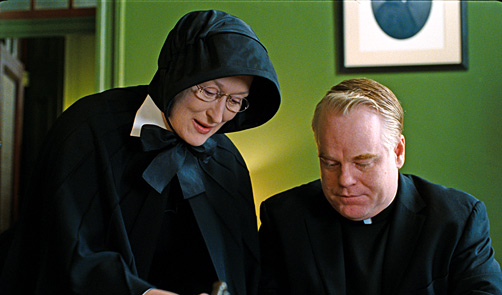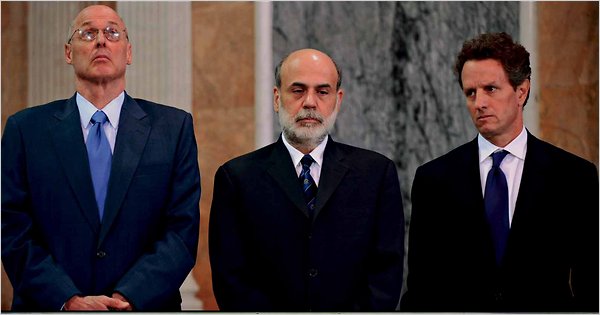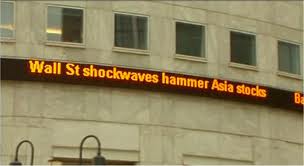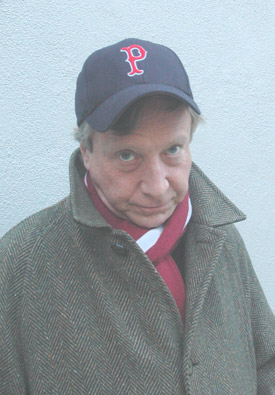
Well, I never saw the Broadway play, so I can’t evaluate if the source material played any better on stage. But
John Patrick Shanley’s half-baked Doubt is one mess of a movie, and I eventually went from mildly intrigued to bored to actively irritated by it. A grab-bag of timely hot-button issues and Oscar-minded lip-quivering, the film is stagy, often contrived, and fundamentally confused, and as a treatise on doubt in all its manifestations, it’s basically all over the place. Worse, it suffers from a glaring oversight at its core — more on that in a bit — that effectively killed the entire movie for me.
Now, I should probably say upfront that, unlike some critics who’ve responded very favorably to the film, I am neither a practicing Catholic nor aggressively ex-Catholic — my family worked all that out in generations prior — and thus I have no personal feelings and/or axes to grind with the church or the accompanying Catholic school experience. As an agnostic if I’m anything, I’d say I’m actually pretty comfortable living in doubt, so it wasn’t the movie’s purposeful lack of resolution that rankled me. As a filmgoer, tho’, I have to give an amen to Salon‘s Stephanie Zacharek, who basically nailed this film to the wall: “Nothing in ‘Doubt’…is certain, definitive or clear. Least of all the filmmaking.”
The year is 1964, Kennedy’s assassination still clouds the nation in gloom, and, in the Bronx working-class neighborhoods that comprise the parish of St. Nicholas (as in Colin Hanks’ parish a few boroughs over), the times-they-are-a-changin’. Representing this tolerant — some might say permissive — new era of Beatlemania and Vatican II is one Father Flynn (Philip Seymour Hoffman, good as always but let down by the material.) Flynn is an amiable fellow who’s seemingly won the hearts and minds of both his flock and the boys at the parish school, but he has his enemies — namely the principal of St. Nick, Sister Aloysius (Meryl Streep, hammy and, like Nicholson or Pacino these days, seemingly playing herself playing the part.)
A seriously old-school nun who talks like a Brooklyn street tough and sees it as her divinely ordained mission to keep the kids in a perpetual state of fear, Sister Aloysius doesn’t cotton at all to Father Flynn’s long fingernails and new-fangled ways. (I mean, Christ on a stick, the man even uses a ballpoint pen.) And when the well-meaning, preternaturally innocent Sister James (Amy Adams, making Julie Andrews in The Sound of Music look like Anais Nin) happens to notice some strange, potentially troubling interactions between Father Flynn and the school’s only black student, Donald Miller (Joseph Foster II), Sister Aloysius has all the evidence she needs to embark on a one-woman crusade against her pastor. What really happened between the man and the boy, and are there any mitigating circumstances that should be taken into account? Well, in the good sister’s eyes, of course not — After all, doubt is a luxury one can ill afford in service of the Lord.
At the film’s opening (and to make sure we all have the study notes), Father Flynn gives us a brief sermon on doubt — how, rather than isolating and dividing us, it can in fact be as sustaining and unifying as faith. Hmm, that sounds interesting…but what kind of doubt does he mean? Doubt as in a state of personal despair? Or does he mean — a pretty dodgy area for a Catholic priest to go in 1964 — doubt in one’s faith, and/or the divinity of Christ? Is he referring to doubts we might have about the intentions of others, or doubts we should have about our own preconceived certainties about them? Should we doubt the circumstantial evidence before us in the Flynn case (and if so on, on what grounds), or should we doubt Flynn’s professions of innocence?
In Shanley’s film, the answer seems to be yes, all of the above. Whenever the movie seems like it’s beginning to dole out a certainty — say, for example, that Sister Aloysius is very definitely the “bad guy” here (after all, nobody expects nor likes the Spanish Inquisition) — it quickly scrambles over to the other side of the deck to keep us guessing. (But she is very solicitous towards the older nuns!) This tendency reaches either its apex or nadir — how’s that for maintaining doubt? — when Sister Aloysius confronts Donald’s mother (Viola Davis, in a justifiably praised turn) about the possible inappropriate touching incident. Even when we think we’ve got a lock on this one — moms don’t usually look kindly on potential child predators — Doubt zags the other direction (The upshot: Surprisingly, she’s ok with it, if it means Donald can still graduate.)
That scene with Viola Davis, probably the most powerful in the film, inadvertently points toward what I thought was the key problem with Doubt, and why after awhile it began reminding of the interminable and (to me) insufferable post-structuralism seminars I sat through in early grad school. (The subaltern cannot speak!) Here’s the problem: Amid all the weeping and teeth-gnashing and rending of garments (by the privileged white folk in positions of authority) about what might or might not have happened here, nobody ever seems to think to ask Donald about the incident. (This is despite the fact that the film makes a joke out of how often children who act out-of-turn are sent up to the hellish confessional that is Sister Aloysius’ office.)
Now, as a friend of mine pointed out when I mentioned this, if somebody had asked Donald, that would more than likely remove all doubt from the equation, and thus ruin the movie and its intellectual purpose. Well, maybe so. But if your story is such a house of cards that it can be brought down by such an obvious and central lacuna, then maybe it should just go back to rewrites. Now, I’m in general sympathy with Shanley’s relativistic vision here — Don’t ever think you know anything for sure, because you don’t. But when such obvious, real-world empirical evidence about the problem at hand is basically ignored so people can continue to fret about Doubt, Unknowability, and Other Big Important Ideas, then the whole movie starts to feel like a long, empty intellectual exercise.
So, in brief, if you want to see a play-turned-movie that flirts with Big Ideas, while engaging the question of whether a potential pedophile can be a good teacher and/or worthy human being, skip Doubt and rent The History Boys. And if you want to catch a well-made, well-acted film about living with the exquisite agonies of inescapable unknowability, skip Doubt and rent David Ficher’s Zodiac. Either way, this movie is eminently missable.





